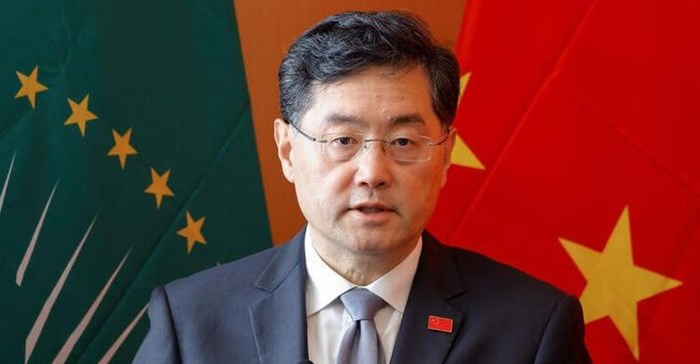Foreign Minister Qin Gang denied allegations made by some foreign politicians and the media that China’s loans to African countries are creating “debt traps” on Wednesday. He made the remarks at the African Union Commission’s headquarters in Addis Abeba, Ethiopia, during a joint news conference with Moussa Faki Mahamat, chairman of the body.
Qin, who is on his first foreign trip as China’s top diplomat, called the claims “narrative traps” and baseless accusations. China has offered the most debt forgiveness to African countries, he said, and has signed deals or reached agreements with 19 of them on debt forgiveness. In 2021, President Xi Jinping stated, “China is ready to channel $10 billion from its share of the International Monetary Fund to African countries.”
According to a World Bank report, multilateral finance institutions and private creditors hold nearly three-quarters of Africa’s total debt. “They could and should play a larger role in Africa’s debt relief issue,” Qin said. According to observers, reinforcing the “debt trap” hype is not helpful in alleviating the financial burden that Africa’s least-developed countries face, given the lingering COVID-19 pandemic, the global economic downturn, and geopolitical conflicts.
“The ultimate solution for resolving African countries’ debt issue is to push for their progress in development, poverty relief, and achieving their economic potential,” said He Wenping, a senior researcher at the Institute of West-Asian and African Studies of the Chinese Academy of Social Sciences. “China has done more than many Western countries in terms of job creation, investment, and factory construction in African countries,” she said.
“If you look at the extent and degree of (China’s) investment, even just starting with Ethiopia, many African countries have been extremely receptive to Chinese investment,” Hassan Khanenje, director of the HORN International Institute for Strategic Studies, told Turkiye’s Anadolu Agency.
After China signed cooperation agreements with some African countries, media claims of the creation of a “debt trap” in Africa have pointed to loans under the Belt and Road Initiative.
Ren Lin, head of the Department of Global Governance at the CASS Institute of World Economics and Politics, said some developed countries with ulterior motives have demonised BRI cooperation between China and partner countries, by claiming that building projects under the initiative lead to “debt traps”.
“The debt issues of those countries involved in the BRI should be attributed to other factors, such as unresolved ongoing issues, the impact of the global financial crisis, those countries’ stimulus packages, and excessive financing in financial markets,” she said.
In contrast to some Western countries pushing other countries’ economies to the brink of collapse, China has been serious about suspending African countries’ debts within the G20 framework, she said.
Asked by reporters about the second US-Africa leaders’ summit held last month in Washington, Qin said, “Africa should be a big stage for international cooperation, not an arena for competition among major countries”.
According to Qin, China has built over 6,000 kilometres of railway, more than 6,000 kilometres of roads, nearly 20 ports, and more than 80 major power facilities in Africa since the turn of the century. “We are pleased to see any country — no matter who it is — that is genuinely interested in assisting Africa in achieving peace and development,” he said.
China is willing to enter into trilateral and multilateral cooperation with African countries in order to make greater contributions to Africa’s revitalization, he added.
















